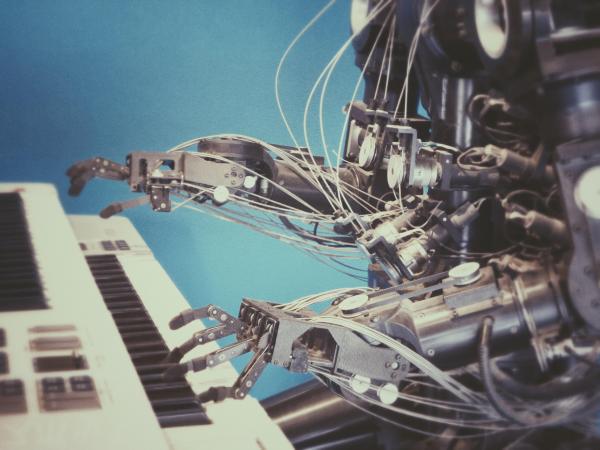How Is Artificial Intelligence Changing Every Business? 6 Interesting Things You Should Know
While AI has connotations of futuristic societal takeovers, as depicted in sci-fi, the technology tends to enhance rather than replace human capabilities.
Artificial intelligence refers to any computer software capable of problem-solving, planning, analyzing, and aggregating data in a human-like fashion. From cost efficiency to customer communication, businesses can use AI to streamline most aspects of company processes.
Let's take a look at 6 interesting things you need to know about how artificial intelligence is changing businesses today.
-
Saves Money
In situations where human resources are limited, such as employee hours per week or resources, AI is often the most cost-effective solution. Most assume it is an expensive operation to run, when in fact, the cost of AI in business can range from $0- $300,000 depending on its use.
Chatbots, for example, can run for around $40,000 per year. As AI chatbots become more effective and common in commerce proceedings, businesses can afford to implement them. Businesses find it attractive because of its ability to significantly increase productivity and reduce mundane, repetitive tasks.
-
Machine Learning
This is a prevalent aspect of consumer targeting that most of us are unaware is even happening. Businesses can use machine learning as a way to analyze and predict customer buying habits and preferences, assess market trends and improve targeting. This data can allow businesses to cater to consumers by applying a preference-based method. One example of this is when we see things recommended to us online or “you may like” features. This is quite effective in increasing company revenue and growth.
-
Efficient Hiring
Businesses are already using artificial intelligence to transform their hiring processes and operations. Businesses can use it to identify highly qualified candidates for specific job openings by scanning large volumes of resumes and other talent sources.
Human decision-making is aided by AI in the recruitment and hiring process, and managing data is a breeze. It can review and write job descriptions, sort candidates, eliminate bias, increase objectivity, and save time by decreasing the need for human intervention in administrative tasks.
-
Replaces Human Labor
Today most factories operate by using artificial intelligence. We see it in supermarkets too.
While many are worried that the automotive AI used in transportation and manufacturing fields is replacing human jobs, some argue that in fact, it creates more.
Research and public concern have centered on the potential effects of technologies like machine learning and robotics on the workplace as these technologies become increasingly prevalent in everyday life.
Yet, to sustain AI, substantial human input is still required. Furthermore, AI may begin to take over more mundane professions in the near future, making many creative endeavors more feasible.
-
Advanced Marketing Options
Marketing teams can use artificial intelligence to gather and analyze data, thereby creating insights into economic and consumer trends.
In order to offer tailored solutions, sales teams are using AI to get to know their customers better and attract them to their content or services.
For example, combining content marketing and artificial intelligence can allow content to be targeted based on consumer preferences generated by data algorithms. Or, by asking their buyers questions, online companies are able to customize their products and display only those that align with the customer's preferences.
-
Reduce Administrative Tasks
A more customized experience for customers isn't the only use of artificial intelligence. It can also change the way a business operates internally. The use of AI in administration management extends to the management of personal calendars and emails, essentially streamlining the organization of the day-to-day business.
This type of AI can be programmed by the user to execute certain tasks such as automated text and email messaging and answering customer questions over the phone or via chat. Time-saving and increased productivity are facilitated as a result of streamlining these small tasks, therefore businesses can devote more time to revenue earnings and growth strategies.
Things To Note
Artificial intelligence is used in most aspects of our daily lives, but its role is growing with, not replacing, human decision-making. Applied AI will continue to advance as technology advances, and technology is advancing through human endeavor.
It's not like we're handing over all the decision-making to machines. Humans aren't being replaced by AI. It is more about providing transparency and enabling smarter decisions using these algorithms.
Artificial intelligence may not always perform at its best when operated on its own. Business performance is often improved when humans and machines work together, for example when AI technologies replace lower-level, repetitive tasks.
Instead of replacing human capabilities with AI, we should use this powerful technology to enhance them.

